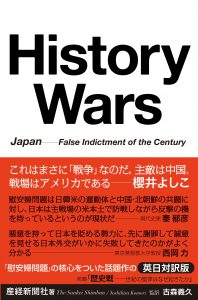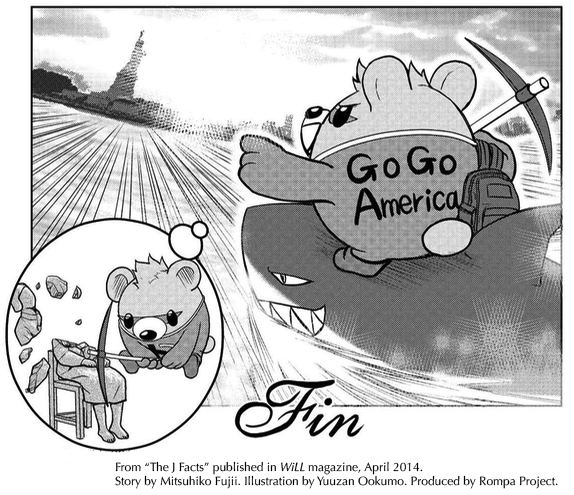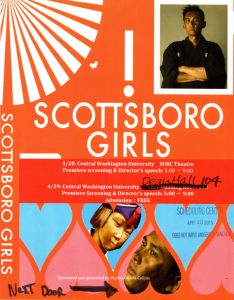Sankei Shimbun (産経新聞) is a daily newspaper in Japan with a distinct conservative and nationalistic slant. In 2015, Sankei had the seventh largest circulation after three major newspapers (Yomiuri, Asahi, and Mainichi) as well as some regional and specialized newspapers. Sankei Shimbun also publishes Seiron (正論), a monthly conservative opinion magazine, and Yukan Fuji (夕刊フジ), an evening daily.
Since April 2014, Sankei Shimbun began publishing a series of columns titled “History Wars” (歴史戦) that are aimed at overturning historical orthodoxy of Japan’s war crimes during the WWII, especially the comfort women system and the Nanking atrocities. Authors for the series include Yoshihisa Komori (古森義久), the newspaper’s Washington D.C. correspondent and a member of the editorial board; Rui Abiru (阿比留瑠比), the politics editor and a member of the editorial board; Takashi Arimoto (有元隆志), the politics editor; Katsushi Nakamura (中村将), the Los Angeles correspondent; and others.
Some of the early columns in the series were compiled and published in October 2014 as the book “History Wars,” which was then translated into English as “History Wars: Japan–False Indictment of the Century” in July 2015. It was one of the two books Parliament member Kuniko Inoguchi sent unsolicited to hundreds of foreign researchers and journalists covering Japan.
Following Akiko Okamoto’s earlier call to arms in the May 2012 issue of Seiron, Sankei views “history war” as a propaganda war waged by China and Korea against Japan at the United Nations and in the United States. Yoshiko Sakurai states in the blurb to the English edition of “History Wars”: “This is a war. Our enemy is China, and the main battle eld is the United States.” Sakurai further states, “The public opinion warfare that China has provoked is definitely a war without using weapons. Japan must make all-out efforts to counter the Chinese offensive.”
In addition to columns written by members of its own editorial team, Sankei Shimbun and Yukan Fuji publishes columns by noted history deniers including Koichi Mera, Tony Marano, Mio Sugita, Yumiko Yamamoto, and others. At least on one occasion, Sankei Shimbun formally sponsored a fundraising event for the Global Alliance for Historical Truth.
In 2017 Sankei Shimbun launched an English language news site Japan Forward, which publishes opinion pieces written by Michael Yon and other comfort women deniers.






